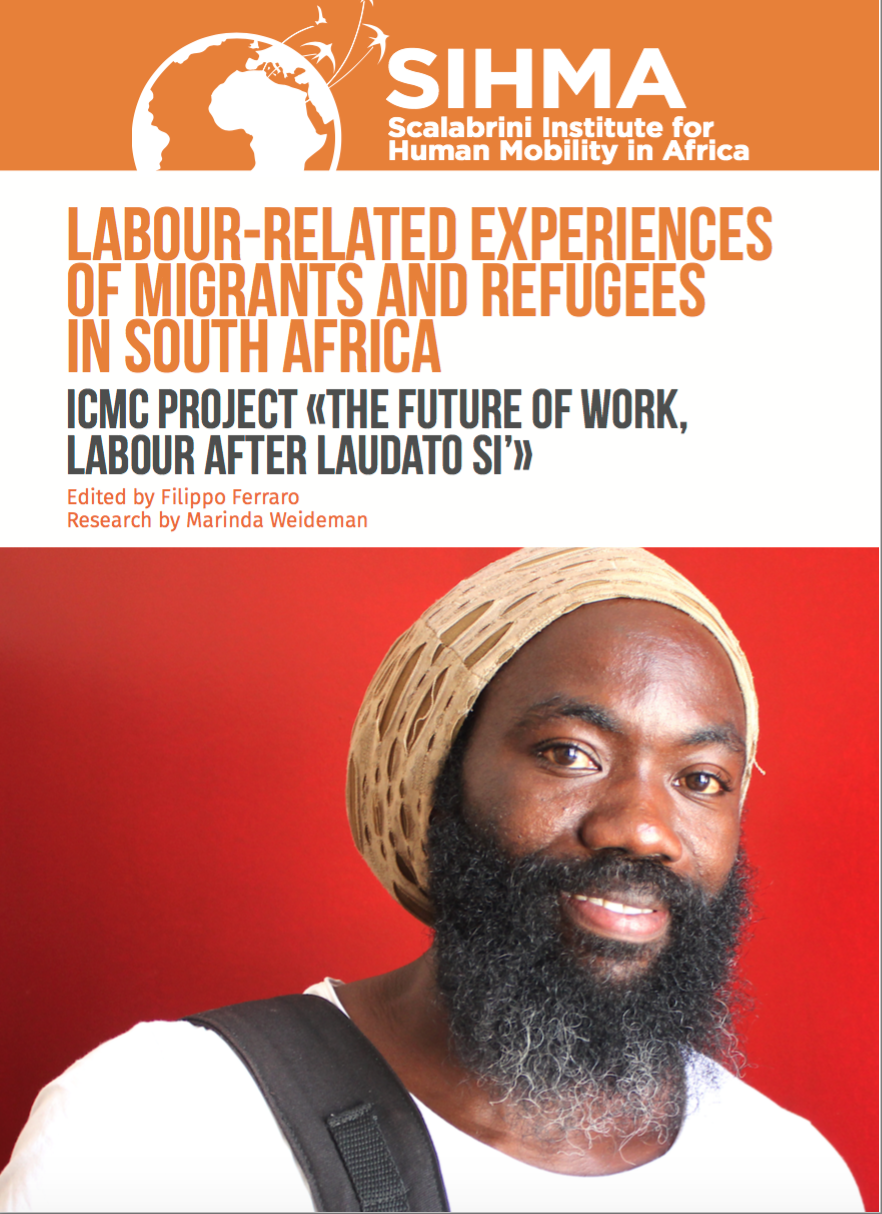
The Report: 'Labour-related experiences of Migrants and Refugees in South Africa' is now published
On the 16th of March, SIHMA published Dr. Marinda Weideman’s report on the labour-related experiences of migrants and refugees in South Africa. It is an extensive report based on interviews with 17 subject experts, 2 employers and 39 migrants and refugees. The purpose of the report was to understand the processes pertaining to the employment and working conditions of migrants and refugees in South Africa. Dr. Weideman notes 13 key findings:
- The most likely reason for migration among the research population is war and political turmoil.
- The need for livelihood opportunities is a driver for migration, but as a result of poverty and lack of alternatives, rather than opportunistic behaviour.
- Social networks and family were not found to be drivers of migration, although they helped contribute to survival post-arrival.
- Most research participants entered the country without the appropriate documentation or without following legislated processes.
- For un-skilled, low-skilled and undocumented migrants, refugees and asylum seekers, life in South Africa is difficult and fraught with challenges, such as systematic human rights violations.
- Respondents were generally able to access basic services such as water and electricity.
- Few migrants send remittances to their country of origin.
- For most respondents, working conditions are exploitative and degrading.
- There are many barriers to decent work, such as corruption, xenophobia and discriminatory legislation.
- It is very difficult for migrants to access employment in the formal sector or wage-based employment in the informal sector.
- The migrants and refugees that were interviewed were more likely to be employed in low-skilled jobs.
- 40% of respondents were not aware of their labour or other rights, and another 40% were aware but afraid to actualize their rights.
- Being a woman exacerbates suffering and increased challenges in every aspect of the migrant and refugee experience.
The report gives an extensive background on the situation in South Africa, including an overview of the relevant international and national legislation. To make her key arguments, Dr. Weideman uses interesting and often moving quotes from the interviews with her research population which give dimension to the report. At the end of the report, Dr. Weideman also gives five recommendations:
- Revise the immigration system and its legislative framework.
- Improve conditions of work for all workers in exploitative or unregulated sectors in the South African economy.
- Conduct quality research for evidence-informed policy and legislature development.
- Continue with, and introduce additional interventions to improve the quality of life of migrants and refugees in South Africa.
- Provide repatriation and reintegration services where possible.
To read the full report, visit: http://sihma.org.za/reports/labour-related-experiences-of-migrants-and-refugees-in-south-africa
Categories:
Tags:

